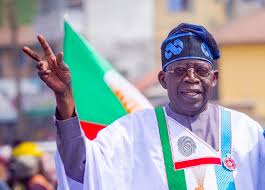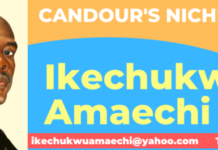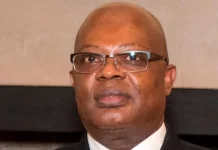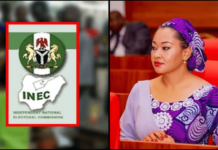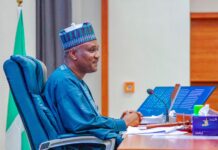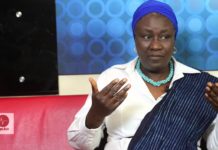Tinubu lacks “coherent” policy, more keen on sound bites without effect
By Jeph Ajobaju, Chief Copy Editor
President Bola Tinubu has announced pro-market policies in rapid succession since mounting the saddle in the Villa, but they have not added up to “a coherent plan, compromising his government’s ability to make the reforms work,” says the Economist Intelligence Unit (EIU) in its latest country report on Nigeria.
The EIU, which backed Tinubu during the campaign, is only repeating what Nigerians themselves have noticed that the President – who has a baggage of both moral and legitimacy deficits – is more keen on grabbing headlines with sound bites for the optics than doing effective policy implementation.
On his first day in office a hugely wasteful petrol subsidy was scrapped, the EIU recounted in the report, which is produced verbatim below:
Naira loses 63% of its value to “float”
Nigeria will continue importing virtually its entire petrol requirement until the second half of 2024, when a new mega-refinery (the Dangote refinery) materially ramps up output.
In the meantime landing costs will fluctuate with the exchange rate, which Mr Tinubu wants to be market-led. Since a “float” of the naira in June the currency has lost 63% of its value against the US dollar.
Retail petrol prices have been held fixed despite the higher landing costs for marketers, indicating a return to a covert subsidy to forestall mass industrial action.
Politics will generally be consumed by cost-of-living pressures well into 2024, tying Mr Tinubu’s hands. The same applies to deregulation of the power sector, another landmark reform.
Although investment in the power sector should materialise over the medium to long term, the authorities will baulk at raising tariffs to match costs in the short term.
After brief consolidation in June, a wide (35%) spread between the official and parallel-market exchange rates has re-emerged, reflecting an ongoing reluctance by the Central Bank of Nigeria (CBN) to allow free access to hard currency, and resulting illiquidity in the Nigerian Foreign- Exchange Market (NFEM, the official window).
Pressing harder on currency reform would therefore mean a hefty devaluation, crushing any pretense of petrol price deregulation (assuming that higher pump prices are a political red line) and stretching a fragile fiscal position.
A decision in October to scrap import controls on 43 imported items – historically a factor behind a lively parallel market currency trade – is in theory positive for a market led naira, but will generate added demand in the formal market against limited supply.
It demonstrates Mr Tinubu’s willingness to take on influential business lobbies that have long benefited from protectionism.
However, other factors undermining the naira, such as deeply negative short-term real interest rates, require an orthodox monetary policy that the authorities have not demonstrated enough appetite for.
__________________________________________________________________
Related articles:
Northern youths urge Tinubu not to emulate Buhari’s skewed appointments
Baba-Ahmed insists Tinubu remains a drug dealer, as court did not clear him
SERAP alerts, Tinubu already violating Constitution by banning journalists
__________________________________________________________________
What will make Dangote Refinery produce for local consumption
We therefore do not expect a currency float to succeed over 2024-28, although it seems likely that the fuel subsidy will end when the Dangote refinery is able to replace imports, from late 2024 onwards.
Market-led pricing will incentivise the facility to sell locally rather than export its output.
Deregulated pricing will also allow NNPC Limited, which initially absorbs subsidy costs, to start operating as a commercial entity, as required by the 2021 Petroleum Industry Act (PIA), a major piece of oil sector legislation.
Combined with more competitive fiscal terms under the PIA, eventual commercialisation of NNPC Limited improves the outlook for investment in hydrocarbons, as multinationals in joint-venture partnerships will be more confident about cashcalls being met.
Oil output has been falling over the past decade, but we tentatively project a gradual rise from an estimated 1.24m barrels/day (b/d) in 2022 to 1.41m b/d in 2028. This will not necessarily be linear, however, given numerous operational difficulties, in particular insecurity in the Niger Delta.
Fiscal policy
Relatively large budget deficits are expected as part of Mr Tinubu’s “fiscally active” job-creation and infrastructure agenda. The 2024 budget is in an early draft stage, but already indicates a large increase in non-debt spending.
Savings from higher pump prices (even with a covert subsidy) will be recommitted to higher public-sector salaries and cash transfers to poor households.
We expect the subsidy reform to have little net effect on the fiscal balance. We forecast a fiscal deficit of 5% in 2024, only marginally down from the estimate for 2023.
Deficits are projected to average 4.7% of GDP in 2025-28, although this is still in excess of a legal limit of 3% of GDP and will mark an unusually lax era for fiscal policy in Nigeria.
Debt service and high social spending will underpin an elevated expenditure profile, but the petrol subsidy is expected to be stopped in full by 2025 (assuming that the Dangote refinery is at full capacity), easing pressure.
VAT expected to rise to 15% by 2027
We also expect incremental increases in value-added tax (VAT) from 7.5% to 15% by 2027 as efforts are made to widen the tax net (the focus in 2024) to fund high expenditure.
Mr Tinubu is expected to relax existing fiscal responsibility legislation, and as part of the process overhaul annual borrowing limits. This would permit the government to turn to the debt market, rather than rely on the CBN, when revenue underperforms.
Costly CBN loans are omitted from official debt reporting and have been a notable part of the debt-servicing burden (and attendant high inflation) in recent years, with interest charged at 3 percentage points above the policy rate.
Inclusion of past deficit monetisation in the officially reported debt stock as part of a loan-to-bond swap with the CBN in 2023, and an expected rise in formal borrowing, will cause the public debt/GDP ratio to rise quickly over 2024-28.
A statutory 40% ceiling will be breached by end-2025, and public debt will reach 55.1% at end-2028, from less than 20% as recently as end-2022.
Monetary policy
Mr Tinubu has expressed a desire for interest rates to be lower. Since he took office at end-May there has been one 25-basis-point rise in the policy rate, to 18.75% in July, despite inflation rising by roughly four percentage-points, to 26.7% in September.
Two leadership changes at the CBN over the period have interrupted policy coherence, with the September monetary policy committee (MPC) meeting cancelled to allow vetting of the new governor, Yemi Cardoso, and four deputies.
Having fallen behind developments, the CBN is expected to tighten more decisively when the MPC next sits (on November 20th-21st at the latest), leading a tightening cycle that began in early 2022 into a more intense phase.
We expect the policy rate to be raised by a total of 125 basis points, to a terminal rate of 20%, by early 2024. Real short-term interest rates will stay negative, however, and there is a risk of even greater passivity.
The MPC attaches a large weight to economic growth in its decision-making formula, and the CBN’s independence is questionable, with political interference likely.
We expect that the first rate cuts will be made in 2025, when disinflation and monetary easing in advanced markets will have set in, and that the policy rate will fall to 12.5% by 2026 and stay there until 2028.
Inflation will consistently exceed the 9% target ceiling, and real short-term interest rates will be negative, as we expect the CBN to prioritise stimulus over its price stability mandate.

